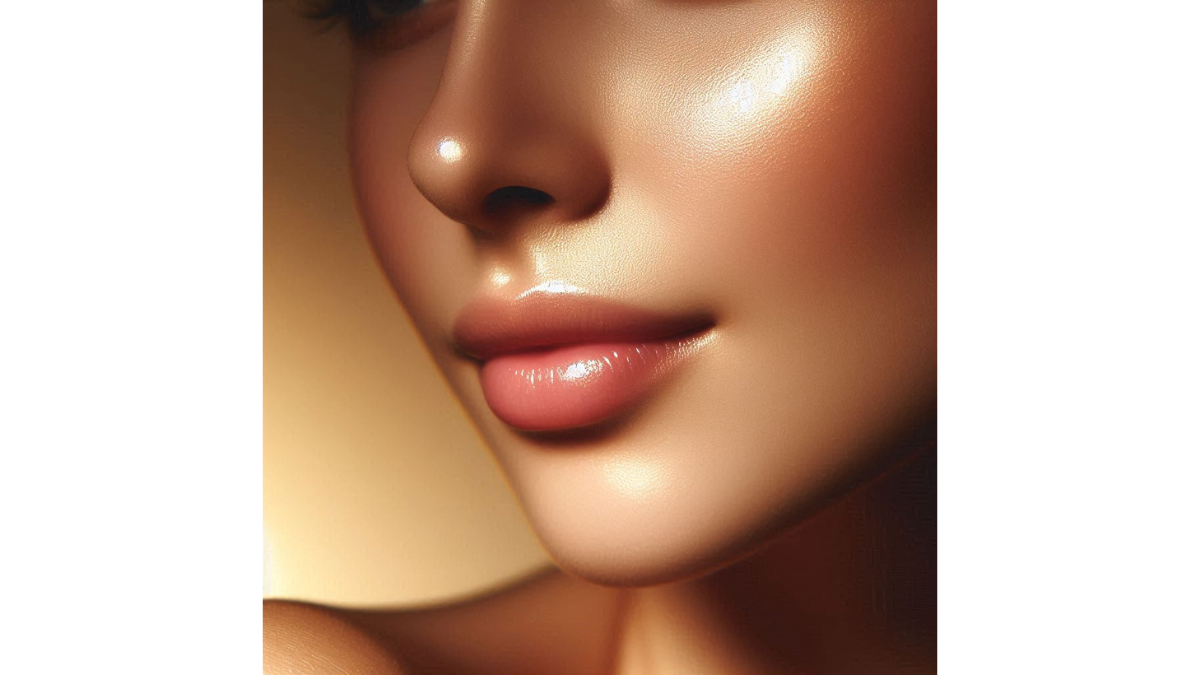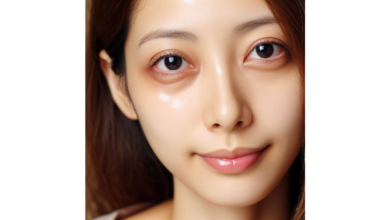The Top Vitamin for Youthful Skin

The Top Vitamin for Youthful Skin – Your skin is not just a protective barrier; it is a living organ that reflects your health and well-being. As we journey through life, the quality and appearance of our skin can shift dramatically, with vitamins playing a pivotal role in maintaining its vibrancy and youthfulness. For many people, understanding the importance of vitamins for skin health isn’t just a fleeting curiosity but a key part of their beauty regimen.
Importance of Vitamins for Skin Health
Vitamins are essential nutrients that not only support your overall health but are also crucial for maintaining glowing and youthful-looking skin. Consider them your skin’s best friends. They help protect it from damage caused by environmental factors such as UV rays, free radicals, and pollution, and they promote healing and rejuvenation. Here are some major roles vitamins play in skin health:
- Antioxidants: Vitamins such as C and E are powerful antioxidants that combat free radicals, helping to prevent premature aging.
- Collagen Production: Vitamin C plays a crucial role in collagen synthesis, which helps maintain your skin’s elasticity and firmness.
- Cell Turnover: Vitamins A and B3 encourage faster skin cell turnover, revealing fresher, healthier-looking skin underneath.
- Moisturization: Certain vitamins can enhance your skin’s ability to retain moisture, combating dryness and promoting a more supple appearance.
For instance, I remember experimenting with vitamin C serums in my skincare routine. Not only did my skin start looking brighter after just a few applications, but my friends also noticed the improvement and started asking what my “secret” was. This is the power of vitamins; they can transform not just your skin but your self-esteem and confidence.
Common Signs of Aging Skin
As time passes, it’s not uncommon to notice certain telltale signs of aging appearing on your skin. These can be distressing yet are a natural part of the aging process. Recognizing these signs early on can help you formulate a proactive skincare strategy. Common signs of aging skin include:
- Fine Lines and Wrinkles: Often the first visible signs, these can make you appear older than you feel.
- Loss of Elasticity: Skin may start to sag, losing its firmness and suppleness.
- Uneven Skin Tone: Age spots, redness, and discoloration can become more pronounced.
- Dryness: Reduced oil production can lead to dry and flaky skin, making it less radiant.
- Pore Size Increase: Over time, pores can appear larger due to the loss of surrounding skin structure.
While noticing these changes can feel daunting, it’s essential to empower yourself with knowledge about how you can utilize vitamins to counteract these concerns. Consider this: according to a survey conducted among skincare enthusiasts, 85% reported seeing visible improvements in wrinkle formation and skin texture after using products rich in vitamins A, C, and E. Here’s a quick overview of how specific vitamins target these aging signs:
| Signs of Aging | Relevant Vitamin | Benefit |
|---|---|---|
| Fine Lines and Wrinkles | Vitamin A | Stimulates collagen production |
| Loss of Elasticity | Vitamin C | Promotes skin firmness and elasticity |
| Uneven Skin Tone | Vitamin B3 | Evens skin tone and reduces redness |
| Dryness | Vitamin E | Provides moisture and reduces dryness |
| Pore Size Increase | Vitamin B3 | Tightens skin and minimizes pore appearance |
Vitamin C: The Antioxidant Powerhouse
As you delve deeper into the world of skincare, you’ll quickly discover that Vitamin C is often hailed as an essential ingredient in leading anti-aging and brightening products. This potent vitamin not only champions skin health but also serves as a prominent player in that eternal quest for youthful radiance.
How Vitamin C Boosts Collagen Production
Let’s begin with one of the most impressive roles of Vitamin C: its ability to boost collagen production. Collagen is the glue that holds your skin together, providing structure, firmness, and elasticity. However, as you age, your body’s natural collagen production diminishes, making your skin prone to sagging, wrinkles, and that dreaded loss of youthful bounce. That’s where Vitamin C steps in as your skin’s superhero. Here’s how it works:
- Collagen Synthesis: Vitamin C is critical for the synthesis of collagen, the protein responsible for maintaining skin’s structure. It assists collagen molecules in linking together, thus forming a strong and resilient network.
- Protection Against Breakdown: This powerful vitamin also acts as an antioxidant, protecting your existing collagen reserves from damage caused by free radicals and UV exposure. This means it not only helps build new collagen but also safeguards the collagen you already have.
- Research Backing: A comprehensive study in the “Journal of Clinical and Aesthetic Dermatology” revealed that individuals applying Vitamin C topically experienced a substantial boost in collagen synthesis, resulting in firmer, rejuvenated skin.
Personal story: I clearly remember the day I decided to switch to a Vitamin C serum. After just a few weeks of consistent use, I noticed that my skin not only felt tighter but looked plumper. Friends would often comment on how my skin had a newfound glow, which I can directly attribute to that tiny green bottle of Vitamin C goodness.
Benefits of Vitamin C for Brightening Skin
Another remarkable quality of Vitamin C is its ability to brighten the skin, making it a favorite among those of us chasing that luminous complexion. If you’ve ever dealt with dull skin or dark spots, you know how frustrating it can be. However, Vitamin C can effectively combat this by:
- Reducing Hyperpigmentation: Vitamin C inhibits melanin production, which can alleviate uneven skin tones and reduce the appearance of dark spots resulting from sun damage or acne scars.
- Enhancing Radiance: As it promotes a more even skin tone, Vitamin C can help your skin glow from within. It revitalizes tired skin and instantly gives it a refresher.
- Fighting Free Radicals: By neutralizing free radicals, Vitamin C helps reduce oxidative stress on the skin, which can cause dullness and uneven texture.
To illustrate this point further, consider these possible steps for incorporating Vitamin C into your routine:
- Morning Routine: Apply a Vitamin C serum after cleansing and before your moisturizer for maximum absorption. This not only makes your skin luminous but also protects it throughout the day.
- Layering with SPF: Following up with sunscreen is crucial, as Vitamin C makes your skin more susceptible to UV damage. The combination can significantly enhance your skin’s resilience against sun exposure.
- Consistency is Key: Like any good skincare regimen, consistency is vital. Aim to apply Vitamin C daily to maintain optimal results.
Here’s a quick overview of the benefits of Vitamin C:
| Benefit | Description |
|---|---|
| Boosts Collagen Production | Promotes firmer skin and reduces the appearance of wrinkles. |
| Reduces Hyperpigmentation | Lightens dark spots and evens skin tone. |
| Provides Brightness | Gives the skin a luminous glow. |
| Protects Against UV Damage | Shields skin cells from free radicals. |
| Enhances Overall Texture | Leaves skin looking rejuvenated and refreshed. |
Vitamin E: The Skin-Protecting Vitamin
Now that you’ve discovered the perks of Vitamin C, it’s time to shift your focus to another exceptional vitamin—Vitamin E. Often referred to as the skin-protecting vitamin, Vitamin E is known for its powerful antioxidant properties and its ability to enhance skin health significantly. This vitamin should be a key player in your skincare routine, especially if you’re looking to protect and nourish your skin against various environmental aggressors.
Role of Vitamin E in Preventing UV Damage
One of the major advantages of Vitamin E is its role in shielding your skin from harmful UV rays. While it’s essential to wear sunscreen to protect against sun damage, Vitamin E can provide an added layer of defense. Here’s how Vitamin E helps prevent UV damage:
- Antioxidant Defense: Vitamin E works by neutralizing free radicals produced by UV exposure. This full-bodied protection helps prevent the breakdown of collagen and elastin, two proteins that are vital for maintaining skin structure.
- Skin Healing and Recovery: If you’ve had a sunburn, Vitamin E is recognized for its skin-soothing and healing properties. Studies have shown that topical application of Vitamin E post-sun exposure can accelerate healing and reduce inflammation.
- Reduction of Sunspots: Continuous application of Vitamin E can help prevent the formation of sunspots and pigmentation over time, acting as a proactive approach to avoiding uneven skin tone.
A personal anecdote comes to mind: Last summer, I was negligent about reapplying my sunscreen while at the beach and ended up with a nasty sunburn. Remembering that I had a Vitamin E oil at home, I decided to slather it on my skin after the burn had started to subside. I was pleasantly surprised to find that not only did it help soothe the pain, but my skin healed much faster than it usually does after sun exposure. That experience made me a firm believer in the magic of Vitamin E!
Moisturizing Properties of Vitamin E
In addition to its protective benefits, Vitamin E is renowned for its exceptional moisturizing properties. For anyone grappling with dry skin, adding Vitamin E to your skincare regimen could make a world of difference. Here’s what makes Vitamin E an excellent moisturizer:
- Skin Barrier Function: Vitamin E aids in strengthening the skin’s natural barrier, retaining moisture and preventing transepidermal water loss (TEWL). This translates to plumper, more hydrated skin that feels soft and supple.
- Deep Hydration: Unlike some lotions that merely sit on the skin’s surface, Vitamin E penetrates deeply and nourishes from within. This is especially beneficial for those dealing with chronic dryness.
- Compatibility: Vitamin E is gentle enough to be used on all skin types, from oily to dry, as it doesn’t clog pores while still providing significant hydration.
To illustrate how you can incorporate Vitamin E into your daily routine, consider the following suggestions:
- Face Oils or Serums: Look for serums or oils that list Vitamin E amongst their ingredients. They can be applied solo or mixed with your moisturizer to amplify hydration.
- Daily Moisturizer: Choose a moisturizer enriched with Vitamin E to nourish your skin throughout the day while providing that added UV protection.
- DIY Solutions: You could also consider using pure Vitamin E oil directly on problem areas, such as dry patches or scars, for targeted treatment.
Here’s a quick overview of the benefits of Vitamin E in skincare:
| Benefit | Description |
|---|---|
| UV Protection | Shields the skin from harmful UV damage. |
| Antioxidant Defense | Fights free radicals to prevent skin aging. |
| Healing and Recovery | Aids in the healing of sunburn and other skin irritations. |
| Deep Moisturization | Locks in moisture and prevents dryness. |
| Skin Barrier Support | Enhances the skin’s natural barrier function. |
Vitamin A: The Anti-Aging Miracle
Following the profound benefits of Vitamin E, we now turn our attention to another powerhouse in the skincare kingdom—Vitamin A. Often lauded as the anti-aging miracle, Vitamin A holds the key to youthful skin thanks to its remarkable properties that stimulate skin renewal and reduce the visible signs of aging. If you’re seeking solutions for that ever-elusive youthful glow, this vitamin is undoubtedly worth exploring.
Stimulating Cell Turnover with Vitamin A
One of the hallmark benefits of Vitamin A is its ability to stimulate cell turnover, which plays a crucial role in maintaining a vibrant and youthful complexion. As we age, our skin’s natural renewal process slows down, leading to a buildup of dead skin cells. This buildup can leave your complexion looking dull and lifeless. Here’s how Vitamin A works to rejuvenate your skin:
- Promotes New Cell Growth: Vitamin A encourages the production of new skin cells, effectively replacing old and damaged cells with fresh ones. The result? Brighter, healthier-looking skin.
- Improves Skin Texture: This increase in cell turnover helps to refine skin texture, making it smoother and softer. You’ll often hear users rave about a “baby-soft” feeling after incorporating Vitamin A into their routines.
- Clarity and Radiance: In my personal experience, after using a retinol cream infused with Vitamin A, I started to notice a significant improvement in my skin clarity. My complexion looked more radiant, and I felt more confident going without makeup. The boost in texture truly made a difference.
To further enhance your understanding, here’s a summary of how cell turnover specifically benefits the skin:
| Benefit | Description |
|---|---|
| Reduced Dullness | Encourages the shedding of lifeless skin cells. |
| Improved Radiance | Generates fresh and vibrant skin. |
| Smoother Texture | Enhances overall feel and appearance of the skin. |
| Fades Scars and Pigmentation | Helps diminish the appearance of old acne marks and dark spots. |
Incorporating Vitamin A into your routine can be as simple as choosing serums, creams, or treatments that contain retinoids. Just remember, because Vitamin A can be potent, especially for those with sensitive skin, start slow—using it a few times a week and gradually increasing frequency.
Reducing Fine Lines and Wrinkles
Vitamin A shines when it comes to combating fine lines and wrinkles, solidifying its reputation as the go-to anti-aging ingredient. As we age, our skin loses collagen and elastin, leading to the formation of lines and sagging. Vitamin A can help reverse some of these signs. Let’s break down how Vitamin A tackles fine lines and wrinkles:
- Collagen Production: Just like Vitamin C, Vitamin A stimulates collagen synthesis, strengthening the skin’s structure. With regular use, you may find that your skin feels firmer and more elastic.
- Smoother Appearance: By increasing cell turnover, Vitamin A smooths out the surface of the skin. This leads to a reduction in the visibility of fine lines and creates an overall more youthful appearance.
- Long-Term Benefits: Consistency is key. Research indicates that the continuous use of retinoids over several months can lead to substantial improvements in wrinkle depth and skin texture. In fact, a study published in the “Archives of Dermatology” demonstrated marked improvement in participants’ skin after just six months of using retinoids.
Consider this quick list of how Vitamin A can benefit your skin regarding fine lines and wrinkles:
| Benefit | Description |
|---|---|
| Improved Skin Elasticity | Helps maintain firmness and bounce in the skin. |
| Diminished Fine Lines | Directly targets the appearance of fine lines. |
| Enhanced Youthfulness | Overall rejuvenation, contributing to a youthful glow. |
When you’re ready to incorporate Vitamin A into your regimen, opt for a product that suits your skin type. There are various formulations, from gentle retinol creams designed for sensitive skin to more potent prescription retinoids for those needing a stronger effect. Remember, though! Vitamin A can increase sensitivity to sunlight, making it essential to apply during your evening routine and follow up with broad-spectrum SPF during the day.
Vitamin B3: The Skin-Restoring Vitamin
After delving into the transformative benefits of Vitamin A, it’s time to explore another vital vitamin—Vitamin B3. Better known in skincare circles as niacinamide, Vitamin B3 is celebrated for its restorative properties that cater to various skin concerns. Whether you’re dealing with uneven texture, enlarged pores, or uneven skin tone, Vitamin B3 is here to help rejuvenate your complexion and restore its natural beauty.
Improving Skin Texture with Vitamin B3
One of the standout features of Vitamin B3 is its remarkable ability to improve skin texture. As we age, environmental factors and lifestyle choices can wreak havoc on our skin, leading to roughness and uneven surfaces. Fortunately, Vitamin B3 can significantly enhance the smoothness and feel of your skin. Here’s how Vitamin B3 works its magic:
- Enhanced Barrier Function: Vitamin B3 strengthens the skin’s natural barrier, which helps retain moisture and improve hydration. This creates a plumper, smoother surface that feels great to touch.
- Reduction of Redness and Flakiness: By reducing inflammation, Vitamin B3 can lessen red patches and flakiness, promoting a more even skin texture. I remember when I switched to a niacinamide serum; my skin became visibly less irritated, and the rough patches from previous breakouts almost disappeared.
- Stimulating Smoothness: A study published in the “Journal of Cosmetic Dermatology” revealed that participants who applied products containing niacinamide experienced significant improvements in skin texture after 12 weeks. The resurfacing benefits truly set Vitamin B3 apart from other ingredients.
Here’s a quick overview of the skin texture benefits of Vitamin B3:
| Benefit | Description |
|---|---|
| Hydration Increase | Helps maintain moisture for a smoother surface. |
| Reduced Inflammation | Lessens redness and irritation in the skin. |
| Overall Improved Smoothness | Reveals a softer and refined skin texture. |
Incorporating Vitamin B3 into your routine can be achieved easily. Look for serums, moisturizers, or toners that contain niacinamide. Generally safe for all skin types, Vitamin B3 can be layered with other active ingredients, such as retinol or Vitamin C, for a multi-faceted approach to skincare.
Minimizing Pores and Evening Skin Tone
Beyond improving texture, Vitamin B3 is also known for its ability to minimize the appearance of pores and even out skin tone. Many of us have, at some point, been on a quest to achieve that flawless canvas with minimal visible pores—and Vitamin B3 may be your solution. Here’s how it contributes to this:
- Regulating Oil Production: Vitamin B3 helps regulate sebum production, which can prevent pores from becoming clogged. Fewer clogged pores mean less chance for breakouts and reduced appearance of enlarged pores. In my own journey, I noticed that when I started using niacinamide, my oily T-zone became more balanced, and my pores appeared smaller.
- Reducing Hyperpigmentation: Vitamin B3 can inhibit the transfer of melanin (the pigment responsible for dark spots) to the skin’s surface, effectively lightening hyperpigmented areas. Consistent use may help fade scars and even out skin tone, leading to a brighter overall complexion.
- Strengthening Pore Walls: By improving skin elasticity, Vitamin B3 can help restore the firmness of pore walls, making them appear less noticeable. This is especially beneficial for those with aging skin, which may naturally experience looser skin and enlarged pores.
Here’s a breakdown of how Vitamin B3 benefits pore size and skin tone:
| Benefit | Description |
|---|---|
| Oil Regulation | Balances sebum production to minimize clogged pores. |
| Hyperpigmentation Reduction | Lightens dark marks for a more even skin tone. |
| Firmer Pores | Tightens skin around pores to reduce visibility. |
You might also find this article helpful Bone Health: Building Strong Bones






One Comment